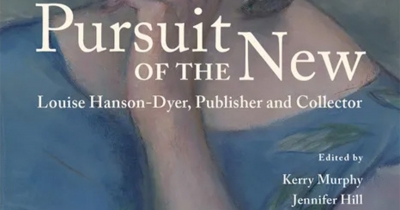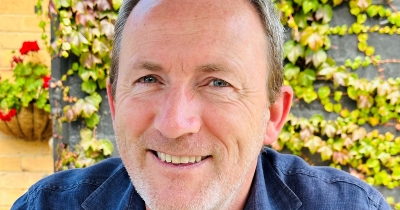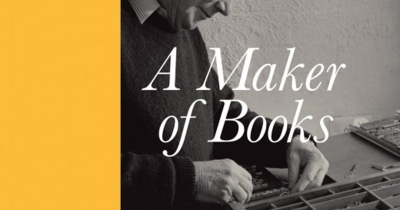Publishing
Pursuit of the New: Louise Hanson-Dyer, publisher and collector edited by Kerry Murphy and Jennifer Hill
Martin Hughes is co-owner and Publishing Director at Melbourne-based independent publisher Affirm Press. Martin has previously worked as editor of The Big Issue magazine, as a writer, editor and photographer with Lonely Planet Publications, and in journalism and public relations in Ireland and Britain.
... (read more)Barry Scott is the publisher at Transit Lounge, an independent press he started with fellow librarian Tess Rice in 2005. He has worked in literary programming, been the recipient of an arts management residency in India and a Copyright Agency grant to research small press publishing in the United States. Beginning with an emphasis on writing about other cultures, particularly Asia, Transit Lounge is now focused on publishing an eclectic mix of Australian literary fiction and non-fiction.
... (read more)A Maker of Books: Alec Bolton and his Brindabella Press by Michael Richards
In a spirit of optimistic support for the APBA’s Book Design Awards, publishers entered 233 books for the 1981 competition, the thirtieth to be held. The judges made short work of their hopes. ‘Best book’ awards were made in only two of seven categories – children’s books and the section for best jacket or cover, won by The Frog and the Pelican (Methuen) and Homesickness (Penguin) respectively. Nineteen other books won commendations. The APBA Andrew Fabinyi prize for the book that best solved problems posed by content or production was awarded to Australia in Figures (Penguin). The judges withheld the $1000 Joyce Nicholson Prize for the Best Book of the Year, as a mark of their disappointment at the standard of entries.
... (read more)A revolt! Well, that is a welcome change, even if the awards produced some inconsistent results. Arthur Leydin, the chairman of the judges, has reacted violently against ‘good taste’ and ‘Englishness’ this year, and books which in other years might have carried off first prize, such as MUP’s Ludwig Becker (designed by Len Trenkner, printed by Wilke, and a 2½-pica book by my reckoning), barely scraped a commendation
... (read more)The first book of yet another publisher of limited editions deserves our close attention. The cult of the limited edition has many followers in Australian publishing today. Some of them work on the principle that if you limit the edition, you can delimit the price, and that collectors and librarians will not be able to resist, even if there is more ‘Dulux’ than ‘deluxe’ to the style of your production.
... (read more)A letterpress book, one of the last of the tribe! I picked it up with pleasure. A clean design (title-page a bit subdued, perhaps?); very consistent and even printing, with the pages beautifully backed up; the creamy Burnie MF a pleasant change from the whiter than white offset papers that we live with nowadays; the halftones (printed by offset) unexciting but passable. Pleasure turned to disappointment when I looked closer. The type (10pt Linotype Baskerville) must have been set from a worn old fount, for in most slugs there are fine hairlines of ink between the characters, and there are some characters in the magazine –notably a lowercase ‘e’ – that are out of alignment at their every appearance. Good presswork almost makes up for all this, but the Baskerville fount, which I am sure must have set many an OUP book in its day, is due for retirement. The book has coloured endpapers, to which I am partial, but printed color is no substitute for using a colored stock, as there are sometimes hints of streakiness. 2 picas.
... (read more)The New South Wales Prices Commission has been listening to complaints that books are overpriced. I meanwhile have been looking at some of the award-winning and commended books in the Children’s Book Council 1978-79 competition, and I am here to say that whatever may be claimed about some kinds of book, children’s books are cheap. It is amazing.
... (read more)It has been suggested that ‘picas’ should again be awarded to books discussed in this column, on the scale of excellence of nought to three established by my predecessor, Peter Pica. Well, I will try; but I point out that what I am looking at is the success or otherwise of books in their own field; I am not trying to relate different kinds of books to one immutable standard of design and production, even if it were possible to do so. I am conscious of the fallibility of judgements like these.
... (read more)



